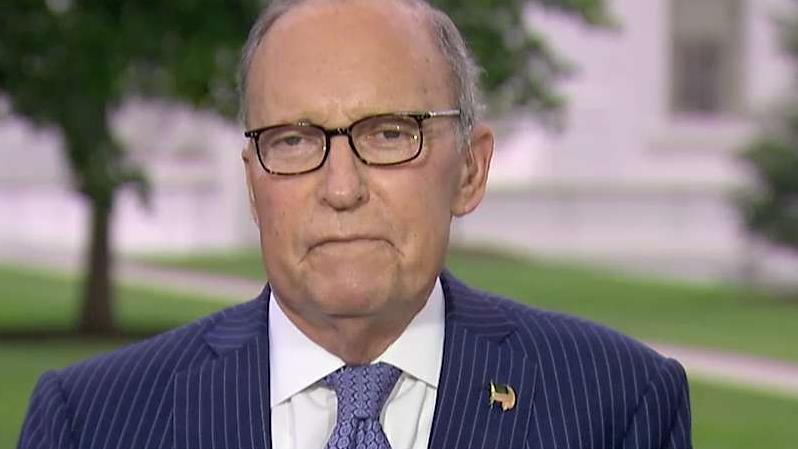Trump’s China plan: What to know
The White House is preparing measures aimed at protecting “critical” and “sensitive” U.S. technologies – in an effort to secure the country’s national security interests – but the impact on China may be less severe than originally expected.
The administration wants to task an existing agency – the Committee on Foreign Investment in the United States (CFIUS) – with protecting U.S. technology. CFIUS will be updated using the Foreign Investment Risk Review Modernization Act (FIRRMA).
U.S. Treasury Secretary Steven Mnuchin refuted claims earlier this week that the measures would be aimed specifically at restricting Chinese investments, after President Trump threatened tariffs on another $200 billion worth of imports from the country.
However, Larry Kudlow, director of the National Economic Council, told FOX Business’ Stuart Varney on Wednesday that the decision does not mean the White House is softening its stance on trade.
“[The plan is] going to be very comprehensive and very effective at protecting our technological family jewels,” Kudlow said to Stuart Varney on “Varney & Co.”
Here are some of the main things to know about what Kudlow has termed “CFIUS plus:”
The CFIUS overhaul
The modernized CFIUS, which regularly screens foreign investments, would designate “countries of concern” and it would be able to review a greater number of investments from those nations, including joint ventures, minority stakes and property purchases near military bases.
It would also have more authority to block investments if there are national security concerns. The updated agency also would have more power to stop other countries from violating U.S. intellectual property rights.
The president also recommended that the U.S. Commerce Department review export controls and make recommendations if anything needs to be updated.
A less harsh approach?
Reports earlier this week suggested the president was considering implementing sweeping restrictions specifically aimed at preventing China from taking U.S. technology.
The administration refuted those reports earlier this week and senior administration officials told FOX Business on Wednesday that, by that time, the president had settled on the “CFIUS-plus” strategy.
In a statement issued on Wednesday, the president did not even mention China by name as a target of the new measure.
Next steps
The FIRRMA legislation has been passed by both the House and the Senate, but it now needs to go through the conference process.
Trump said if Congress fails to pass the legislation, he would implement the restrictions via executive authority.




















